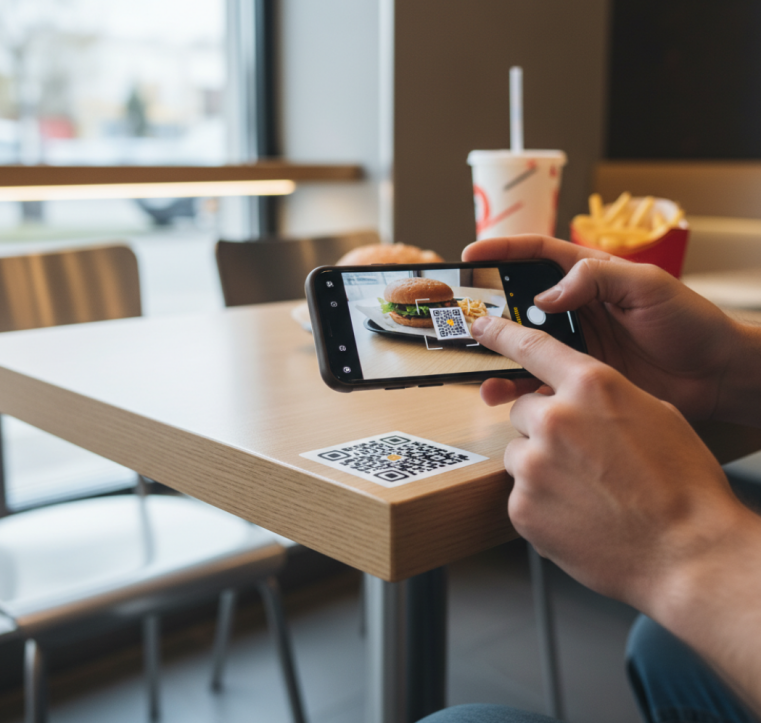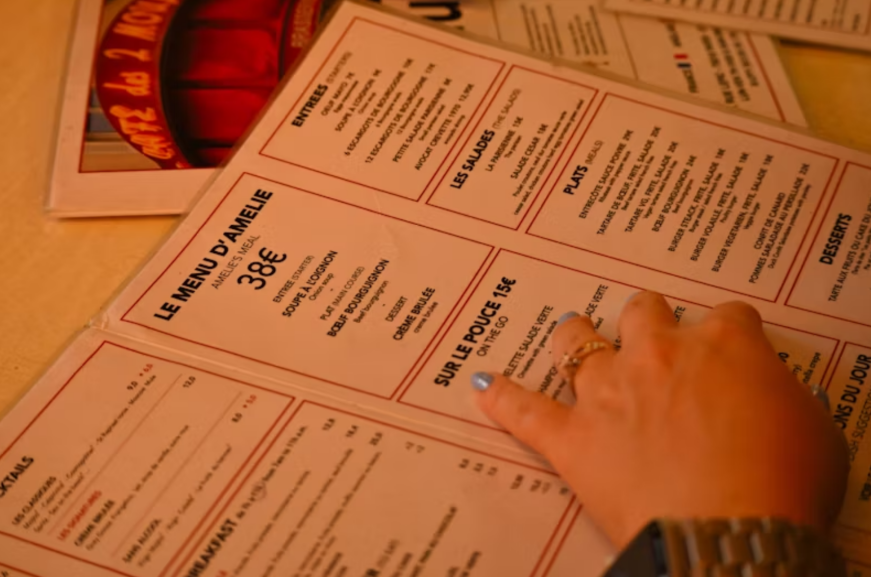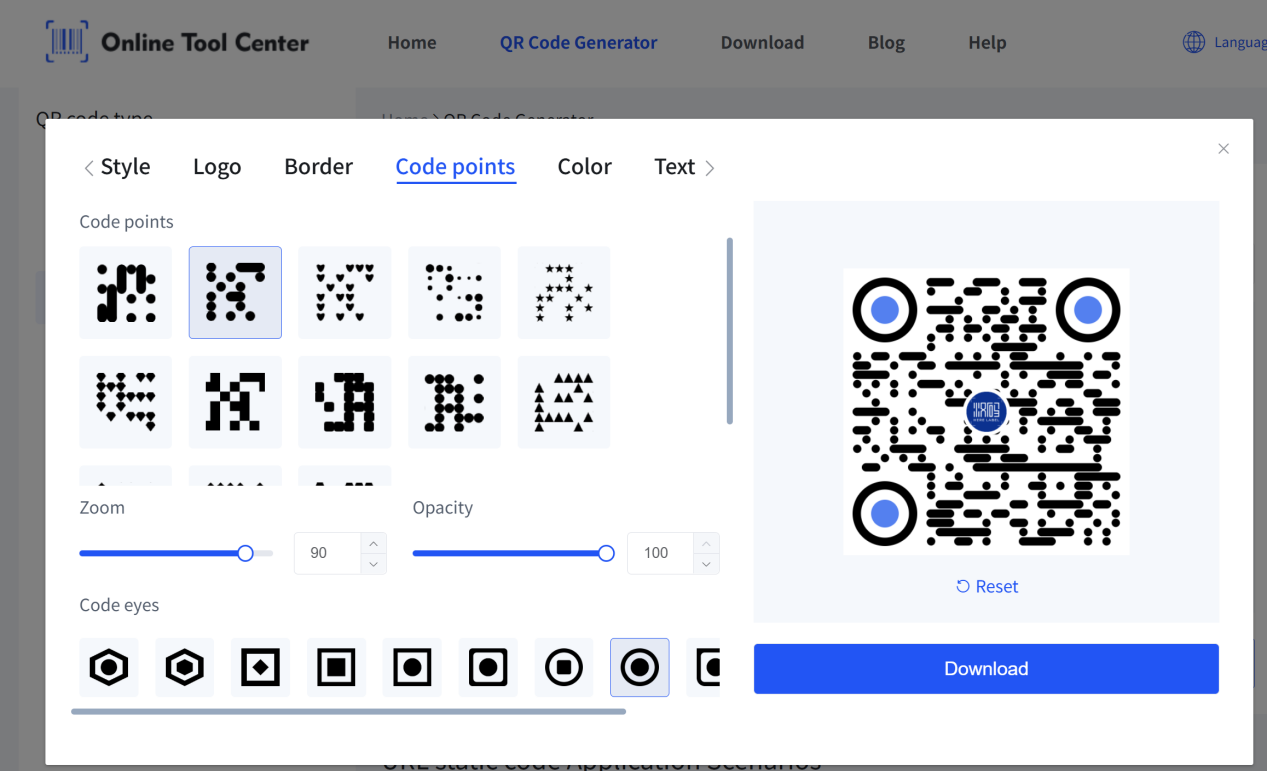

Running a restaurant in 2025 is about more than good food—it's about smooth service and a great guest experience. One of the simplest upgrades that's stuck around since the pandemic is the menu QR code. Instead of flipping through paper menus, diners just pull out their phones, scan, and boom—the menu's right there.
Wondering if a menu QR code is worth it, or how to create one without the headache? This guide has you covered. We'll show you exactly what it is, why it's a game-changer for modern dining, and how to make one in minutes.

A menu QR code is exactly what it sounds like—a scannable code that takes customers directly to your food and drink menu. It can link to a PDF, a mobile-friendly webpage, or even your ordering system. Instead of reprinting menus every time you make a change, a QR code gives you a digital, flexible solution.
Think of it as a bridge between your kitchen and your guests' smartphones. A customer scans QR code for your restaurant, and instantly they're browsing your specials, seasonal offers, or even allergy-friendly versions of your dishes. All these make your menu fast, easy, and touch-free.
So, why all the hype? It's simple: diners love convenience, and operators love cutting down on headaches. A contactless menu QR code checks both boxes. Here are the top reasons restaurants around the world are making the switch:
Post-COVID, customers still prefer low-touch options. A QR code for restaurant menu lets them browse without flipping through shared menus. For example, cafés and casual diners often place table tents with a scannable code, making guests feel safe and comfortable.
Guests don't need to wait for a server to bring menus. They sit, scan, and start choosing right away.
Stop wasting money on printing. With a digital menu, price updates or seasonal specials don't mean a trip to the print shop. One small coffee shop saved hundreds per year by simply adding a menu QR code to its takeaway cups—customers always have the most up-to-date list.

Less paper, less ink, less waste. It's a small change with a big sustainability impact.
Run specials, change your wine list, or hide out-of-stock items in real time.
A customized menu QR code with your logo and colors looks professional and keeps your restaurant's style consistent.
Creating a menu QR code sounds more technical than it actually is. The truth? You can have one up and running in under ten minutes—even if you're not exactly a tech wizard. Here's a no-nonsense breakdown of how to create a QR code for a menu that works for any restaurant:
First, decide what your QR code will link to. Some restaurants go with a PDF menu, but most now prefer linking to a mobile-friendly webpage or even your online ordering system to give guests a faster, more seamless experience.
Head to a QR code menu generator online. Our tool is free and easy to use—no coding, no complicated setup. Just point, click, and you're done.
With it, you only need to:
Don't settle for a boring black-and-white square if you can avoid it. Our QR code generator lets you tweak colors, change code point style, add your logo, or even include a short call-to-action like "Scan for Menu". A polished design makes your menu QR code look more trustworthy and more on-brand.

Before printing, scan your QR code using different phones (iOS, Android, old and new models). Make sure the link opens fast and the menu looks good on mobile. A quick test now saves you the embarrassment of a code that doesn't work during a dinner rush.
Finally, download the QR code in a high-resolution format (usually PNG or SVG) and print it where customers can't miss it—on table tents, wall posters, takeout bags, or even your storefront window.
Printing tip: Always print your menu QR code on matte, high-contrast surfaces to avoid glare. Use a QR code printer with at least 300 dpi for sharp results—perfect for table tents, stickers, or packaging.
Creating a menu QR code is easy. Making it effective? That takes a little strategy. Here are some proven tips—paired with practical use cases—to help you get it right.
There's nothing worse than a tiny QR code that forces customers to wiggle their phones awkwardly. As a rule of thumb, keep your code at least 2 x 2 cm (about 0.8 inches) if it's close to the diner. For signs or posters that guests scan from a distance, size it up accordingly. Test before printing—your future self will thank you.
A QR code menu restaurant setup should feel intuitive. Table tents, wall decals, or even the front window are prime spots. For takeout or delivery, add it to bags or pizza boxes so customers can pull up your menu again later. The key: make it obvious, not a scavenger hunt.
A black-and-white square works, but why not step it up? Most generators let you customize colors, add your logo, or choose a fun frame with text like "Scan for Menu". Just keep enough contrast for readability—your branding should never come at the cost of scannability.
Remember, your menu QR code leads to a mobile experience. If you're linking to a PDF, make sure it's compressed for quick loading and formatted for small screens. For webpages, use a mobile-responsive design so customers aren't pinching and zooming to read.
Smartphones vary. What works on your iPhone may not scan well on an older Android, or glare from glossy surfaces may cause issues. Print a sample, stick it to a table, and test in real-world conditions—dim lighting, sunlight, even through a plastic cover.
Bottom line: Treat your menu QR code like part of the guest experience, not an afterthought. The design, placement, and usability all signal how much you care about customer convenience. Done right, it feels like a natural extension of your restaurant's service—not a tech gimmick.
Yes. You can use a QR code menu generator to upload a PDF and create a QR code for PDF menu free of charge.
For close-up scanning at tables, at least 2 x 2 cm (0.8 inches). For posters or windows, go larger. Always test before mass printing.
Only if you're using a dynamic QR code. Static ones are locked to the file or link you first attached.
Tables, storefronts, takeout packaging, and delivery bags all work well. Think about where customers naturally look when they're ready to order.
A menu QR code is a practical tool that simplifies life for both guests and staff. The key is thoughtful design, strategic placement, and regular testing to ensure it always works.
Try our online QR code generator to create and customize a code for your restaurant—it's a quick way to set up and deliver the seamless, contactless dining experience your guests expect.
 Send An Inquiry
Send An Inquiry
Please fill in your name,email and requirement